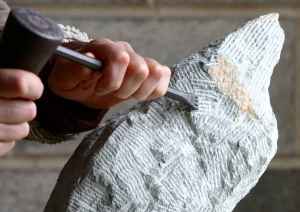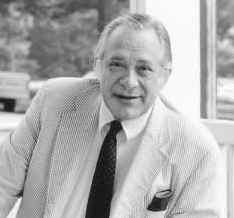 Greg Boyd’s Trinity & Process has been a dietary staple for Dwayne and me here since we started nearly two years ago. It was one of the burdens of this site to argue that open theism, as it has generally been promoted, has a deficient understanding of divine transcendence and that nothing about the open view of the future requires this deficiency. Much of the past two years here has been spent advocating a more robust view of divine transcendence consistent with the open view of the future. And as we’ve seen, this “more robust” concept turns on an axis whose north and south poles are apatheia (as we’ve tried to articulate it) and Chalcedonian Christology. It’s our view that Trinity & Process plays its part here by making very plausible the integration of traditional/classical and more process values and intuitions. All this is past news now. We’ve nothing new to add.
Greg Boyd’s Trinity & Process has been a dietary staple for Dwayne and me here since we started nearly two years ago. It was one of the burdens of this site to argue that open theism, as it has generally been promoted, has a deficient understanding of divine transcendence and that nothing about the open view of the future requires this deficiency. Much of the past two years here has been spent advocating a more robust view of divine transcendence consistent with the open view of the future. And as we’ve seen, this “more robust” concept turns on an axis whose north and south poles are apatheia (as we’ve tried to articulate it) and Chalcedonian Christology. It’s our view that Trinity & Process plays its part here by making very plausible the integration of traditional/classical and more process values and intuitions. All this is past news now. We’ve nothing new to add.
In chatting about where to venture next, Dwayne and I agree enough has been said about Trinity & Process to establish our point in that regard. Time to move on. And though we do espouse an open view of the future and divine epistemic openness regarding the future, we no longer explicitly promote “open theism” since in the end we were unable to establish the essentials of its theological vision. So while we’ll continue to reflect theologically in terms of an open future (libertarian freedom and divine epistemic openness) we’re not particularly invested in open theism as a theological movement. That may change. In the meantime…
 …We’re interested in spiritual formation within an open worldview and the truth of Chalcedon. And in this respect James Loder (1931-2011) has been on our back burner for some time. His work has influenced us both deeply, though Dwayne’s far more in touch with his thought than I am. So we’ll be making Loder a main focus this year. If you’re unfamiliar with him, I hope something we say will inspire you to ponder his work. No need for me to summarize his bio. It’s all available online. He was a well-known and beloved member of Princeton’s faculty (practical theology) for decades. His fundamental insights have to do with the relation of the Holy Spirit and the human spirit in ways that respect the sciences (psychology) and the dynamics of human development and transformation. His three main published books are The Transforming Moment (1981, 1989), The Knight’s Move (1992) and The Logic of the Spirit (1998). For a helpful introduction see this. I suspect we’ll be discussing Fowler, Nesteruk, Frankl and Dallas Willard among others. Should be a fun year exploring the nature of the concrete, lived experience of Chalcedonian Christology. We won’t be especially concerned to defend Chalcedon. We’ll pretty much assume it. What we wish to explore is the living of it.
…We’re interested in spiritual formation within an open worldview and the truth of Chalcedon. And in this respect James Loder (1931-2011) has been on our back burner for some time. His work has influenced us both deeply, though Dwayne’s far more in touch with his thought than I am. So we’ll be making Loder a main focus this year. If you’re unfamiliar with him, I hope something we say will inspire you to ponder his work. No need for me to summarize his bio. It’s all available online. He was a well-known and beloved member of Princeton’s faculty (practical theology) for decades. His fundamental insights have to do with the relation of the Holy Spirit and the human spirit in ways that respect the sciences (psychology) and the dynamics of human development and transformation. His three main published books are The Transforming Moment (1981, 1989), The Knight’s Move (1992) and The Logic of the Spirit (1998). For a helpful introduction see this. I suspect we’ll be discussing Fowler, Nesteruk, Frankl and Dallas Willard among others. Should be a fun year exploring the nature of the concrete, lived experience of Chalcedonian Christology. We won’t be especially concerned to defend Chalcedon. We’ll pretty much assume it. What we wish to explore is the living of it.
To whet your appetite, here’s a wonderful passage of Loder’s from The Transforming Moment:
…to lay hold on that remarkable intelligibility by which one’s fragmentary existence becomes the bearer of the whole, that intelligibility through which all things have been made—to lay hold on that by faith is to touch the ark of the covenant, it is to hear “the sound of a mighty wind,” as “the roar of the New Jerusalem” and it is to die.
Who wants to die so that the uncreated light and life of God may indwell human flesh and turn everything we do into the work of God’s Spirit?
Holy in its nature, the life of the Spirit is stunning in its impact; the depths of its mysterious centered silence remains unmoved, intensely personal, even in its rush through the walls of the upper room, its pause to console, its power to disclose and to heal, and its provocation to joy and exuberant praise.
If we do die, then all that we saw in Him and in ourselves because of Him as He sat at table with us, now becomes in our death the transformation of ordinary existence. We become in our individual and common life the outer expression of His invisible nature, including the darkness of dereliction as well as the light of the transfiguration—that by which condemnation is condemned, false light is itself falsified, and daily life is a continuing intra-mundane ecstasy.
Who will die to bear witness to the inner life of God, to become an expression of this higher order? Not many—or perhaps, in another way, somewhere inside, all of us know we are supposed to die. In moments of deeply centered reflection we know the death instinct is not biological but teleological—we have been given life so as to die for what is so much more important than our own lives. If we just knew a bit more—if we could just put our hand and touch it, to be sure we are not being deceived.
Awesome! Very much looking forward to it, guys.
LikeLike
I’m excited! Can’t wait to see what you guys have in store for us!
LikeLike
Can’t wait to read your thoughts on Loder. I’ve read those 3 books by him, and came across this while following some links here and there.
As a new-comer to your blog, where do I start in understanding what you mean by apatheia? I would normally not put God and that word in the same sentence, even, so I’m curious what you have to say. Any pointers?
LikeLike
Hi Johan,
Nice to have someone from Sweden stop in. I have some very good, long-time friends who live there.
Thanks for the question about apatheia. If you wouldn’t normally couple that word with God, then you know something of the history of the idea and the debate surrounding it today. The word itself is the negation ‘a’ with ‘pathei’ (which were held to be destructive emotions or emotions one was made to feel as against one’s will). When I discuss the word with the Orthodox, for example, I’m reminded that apatheia is part of a fuller description of God as absolutely timeless and having no unfulfilled potential whatsoever; i.e., God as actus purus. Dwayne and I here deny this absolute view. That means that when it comes to apatheia we mean something much more qualified. Perhaps “equanimity” is better. Greg Boyd in his Trinity & Process used “unsurpassable aesthetic satisfaction,” which is a mouthful. What we mean by it is God’s essential, triune beatitude. We don’t think that’s something that can be diminished or compromised by worldly events.
Hope that helps. There are a lot of posts on our blog in the apatheia category if you feel like checking them out.
Loder is a wonderful thinker/writer. We’ll looking forward to getting into him soon.
Tom
LikeLike